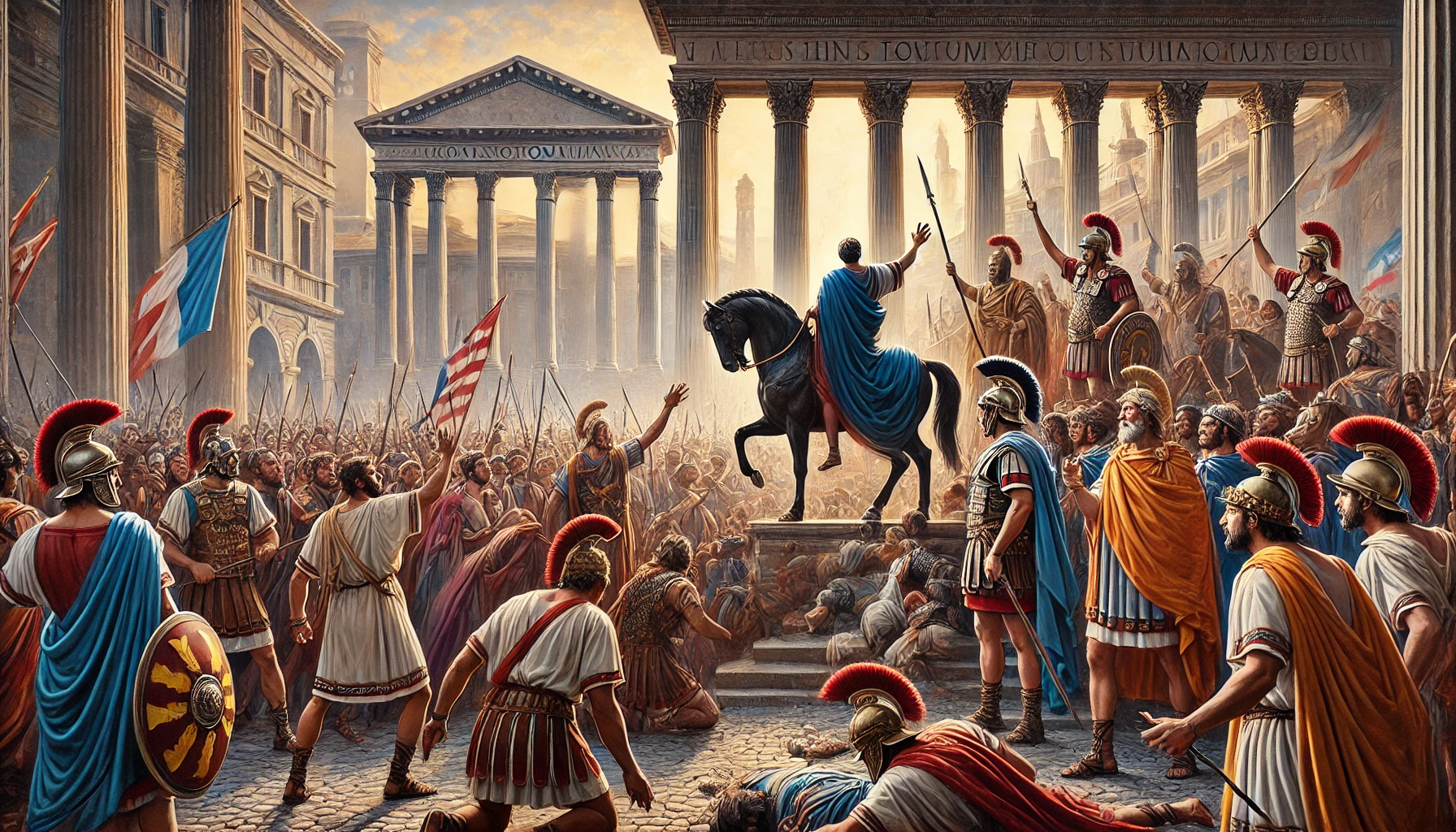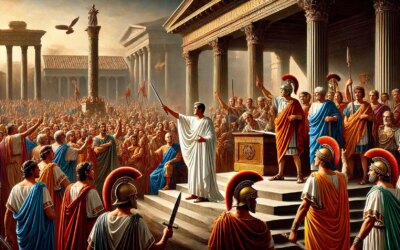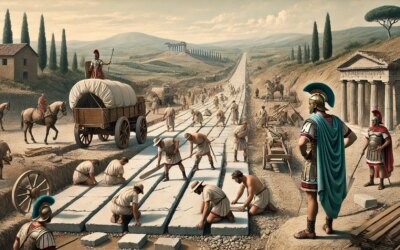The Tyranny of Tarquinius Superbus
By the late 6th century BC, Rome was ruled by its seventh and final king, Lucius Tarquinius Superbus. His reign, marked by oppression and cruelty, alienated the Roman aristocracy and common citizens alike. Unlike his predecessors, who sought compromise with the Senate, Tarquin ruled as a despot, executing senators and suppressing opposition. His brutal rule set the stage for revolution.
The Outrage That Sparked a Revolution
The downfall of the monarchy was accelerated by a tragic event: the violation of Lucretia, a noblewoman, by Sextus Tarquinius, the king’s son. Unable to endure the dishonor, Lucretia took her own life, but not before calling for vengeance. Her death became the catalyst for an uprising against the monarchy, led by Lucius Junius Brutus, a nobleman who vowed to rid Rome of tyranny.
The Revolt Against the King
Brutus rallied the Roman people, denouncing Tarquinius Superbus and calling for the end of monarchy. The Senate and army, already discontented, supported the revolution. Tarquin, caught off guard, attempted to suppress the revolt, but his forces were driven out. The king fled to Etruria, seeking assistance from allied city-states, but he would never reclaim his throne.
The Foundation of the Republic
With the monarchy abolished, Rome established a new system of government—the Republic. Instead of a king, power was entrusted to two annually elected consuls, ensuring no single ruler could dominate the state. The Senate, previously an advisory body, gained legislative authority, marking the beginning of Rome’s era of self-governance.
Brutus’ Sacrifice for the Republic
Lucius Junius Brutus, one of the first consuls, became a symbol of the Republic’s ideals. However, his commitment was soon tested when his own sons joined a conspiracy to restore the monarchy. Brutus did not waver—he sentenced them to death, proving that loyalty to Rome outweighed personal ties.
A Lasting Legacy
The establishment of the Roman Republic in 509 BC reshaped history, laying the foundations for Roman law, governance, and expansion. The Republic would endure for nearly five centuries, influencing political systems for generations to come. The fall of the monarchy was not just a shift in leadership—it was the birth of a new vision for Rome.






